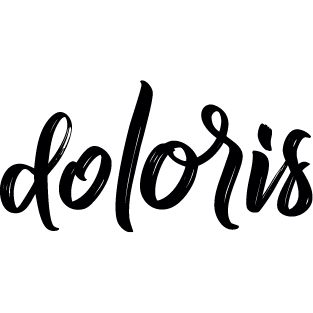

Doloris International B.V.

1.6
North Brabant, Netherlands The
October 2025
Libraries, museums & culture
Service with Significant Environmental Footprint
Netherlands The
Doloris is a creative company that builds immersive art experiences where people can wander, explore, and play with perception, reconnecting with imagination, connection, and wonder. Founded in the Netherlands, the company builds large-scale, walk-through art mazes where visitors explore surreal worlds filled with dozens of handcrafted rooms, hidden spaces and sensory illusions, all created in collaboration with a diverse collective of artists and makers. With locations in Tilburg and Utrecht and plans for international expansion, Doloris creates experiences built around the belief that time spent in art should be time well spent, offering visitors a moment to disconnect from the everyday and reconnect with themselves and others. Doloris operates with a strong commitment to responsibility and transparency. The company is embedding sustainability and social impact into its operations through fair labor practices, responsible sourcing, living wage commitments and the responsible use and limitation of energy resources. Becoming a B Corp represents a natural step in Doloris’ journey toward building a business that balances profit, pleasure, and progress, for its team, its communities, and the planet.
Overall B Impact Score
Governance 13.2
Governance evaluates a company's overall mission, engagement around its social/environmental impact, ethics, and transparency. This section also evaluates the ability of a company to protect their mission and formally consider stakeholders in decision making through their corporate structure (e.g. benefit corporation) or corporate governing documents.
What is this? A company with an Impact Business Model is intentionally designed to create a specific positive outcome for one of its stakeholders - such as workers, community, environment, or customers.
Workers 21.6
Workers evaluates a company’s contributions to its employees’ financial security, health & safety, wellness, career development, and engagement & satisfaction. In addition, this section recognizes business models designed to benefit workers, such as companies that are at least 40% owned by non-executive employees and those that have workforce development programs to support individuals with barriers to employment.
Community 18.5
Community evaluates a company’s engagement with and impact on the communities in which it operates, hires from, and sources from. Topics include diversity, equity & inclusion, economic impact, civic engagement, charitable giving, and supply chain management. In addition, this section recognizes business models that are designed to address specific community-oriented problems, such as poverty alleviation through fair trade sourcing or distribution via microenterprises, producer cooperative models, locally focused economic development, and formal charitable giving commitments.
Environment 21.4
Environment evaluates a company’s overall environmental management practices as well as its impact on the air, climate, water, land, and biodiversity. This includes the direct impact of a company’s operations and, when applicable its supply chain and distribution channels. This section also recognizes companies with environmentally innovative production processes and those that sell products or services that have a positive environmental impact. Some examples might include products and services that create renewable energy, reduce consumption or waste, conserve land or wildlife, provide less toxic alternatives to the market, or educate people about environmental problems.
Customers 16.0
Customers evaluates a company’s stewardship of its customers through the quality of its products and services, ethical marketing, data privacy and security, and feedback channels. In addition, this section recognizes products or services that are designed to address a particular social problem for or through its customers, such as health or educational products, arts & media products, serving underserved customers/clients, and services that improve the social impact of other businesses or organizations.
What is this? A company with an Impact Business Model is intentionally designed to create a specific positive outcome for one of its stakeholders - such as workers, community, environment, or customers.